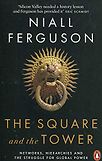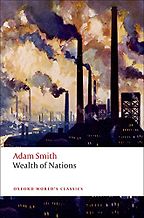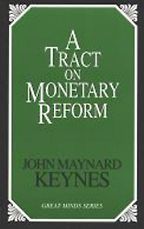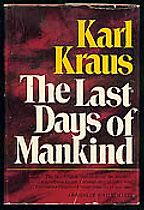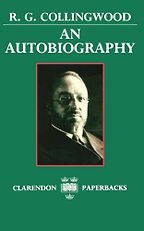Why these five books? What ties them together in terms of theme or influence on you?
Each of these books made an important contribution to the philosophy of history, as well as to the fields that they are generally more associated with. So, as a historian, I have been strongly influenced at various junctures in my life by them all. My own approach to the philosophy of history owes a great debt to each of these authors.
Do you think they would all share one world view or informing principle?
No, I think it would be a nightmare dinner party if they all came. I can imagine Tolstoy being particularly disgruntled, and Karl Klaus only has one thing in common with the others – a formidable intellectual spark. But philosophically, it’s hard to find common ground between them. Smith’s view of the world, for instance, was influenced by his Scottish blood.
You presumably feel Scottish solidarity with Adam Smith?
Of course. As somebody who grew up in west Scotland, I was raised to revere him, and he was a big influence during my childhood. I remember my father once left The Wealth of Nations on my bed, and said “read that”.
The Wealth of Nations is of course the holy doctrine of free markets. Tell me how you understand it in the context of today’s economic climate.
Well, if one actually reads the book, it’s full of wise reflections on oversized corporations and monetary systems. It’s not a naive book. He was well aware of the dangers of corporations, and particularly of banks. So if you read it closely it’s not a naive apology for unregulated markets, but he’s quite keenly aware of the problems of financial regulation.
And what are those problems in your view?
Obviously it’s somewhat different in our time, but essentially what Smith grappled with was the instability of banks and the risk of bank runs. What happened to Northern Rock [in 2007] happened to the Ayr bank [in Scotland in 1772]. Smith also looked at ways in which the state, by intervening, can make matters worse.
“It’s not a naive apology for unregulated markets, but Adam Smith is quite keenly aware of the problems of financial regulation.”
One of the key points that he tried to make is that the market is very susceptible to distortion by government intervention. We can see that quite clearly in our own time. I think the crisis is in many ways a good illustration of Smith’s central point that it’s bad to let government meddle too much in the economy.
But isn’t it the consensus among economists such as Paul Krugman that intervention saved the US from what could have been an even worse mess?
This is a great opportunity to quote Karl Kraus, another author I select here. He said that Freudianism was the disease for which it purported to be the cure. I think much the same could be said of many of the policies that we [in the US] now pursue. The Federal Reserve system has had to take over the US banking system and indeed the US bond market, because the Federal Reserve system made such heinous errors from 2002 to 2004. So I think quantitative easing and fiscal stimulus are the diseases for which they purport to be the cure.
That is perhaps our segue to Keynes – surely Keynesian policies of fiscal stimulus have to a large extent reduced the severity of the crisis?
That’s true up to a point. The problem is that most developed countries went into the financial crisis with structural deficits in their budgets. When you start from that position, it’s much harder to make Keynesian policies work.
Part of the reason why we had deficits in the first place is that tolerance of deficits had come into Western economics through vulgar Keynesians. I use the term “vulgar Keynesian” deliberately, because I think Keynes would be rather appalled at the way his name is used these days to justify policies that are reckless.
Can you identify a specific policy which you think takes Keynes’s name in vain?
I think the notion that the solution to a property price crash or structural unemployment is simply one of even larger deficit than we’ve already seen – which in the US has been almost 10% of GDP for three years in a row – is not something that Keynes would have approved of. In his General Theory he is quite clear about the specific circumstances under which that kind of policy will work.
One of Keynes’s points often missed by the vulgar Keynesians of our time is that you have to have a relatively closed economy for the stimulus to work. So there’s that. Then there’s the secondary point that many of the issues that we face are structural in nature. No amount of fiscal stimulus will get some people into work, if there is a mismatch between their skills and the skills that are required.
Is the economic situation in the US getting better or worse, in your opinion?
I think the reality is that the fiscal crisis in the US hasn’t yet dawned, and it’s not entirely clear when it will, because the US in some ways benefits from the crisis enduring. But there will come a point when it loses credibility in the scale of its borrowings, and it’s very hard to say when that point will come. But come it will. The upper bound of how much it can borrow is reached when interest payments are at more than, say, a quarter of all tax revenues, and that can happen even if interest rates stay reasonably low.
So I think we’re at the point when the problems that are inevitably going to arise haven’t yet hit. The main problem is that if you push the envelope so that it reaches, let’s say, 90% of GDP, then there comes a point when loans will not be given to you at the low rate you have got used to. When that happens, you go into the tailspin that Greece, Portugal, Spain and Italy are going into, and you have to tighten fiscal policy to reassure investors at the worst possible moment. So Keynes would have been alive to the limits of deficit finance under these circumstances.
The only difference between the United States and Italy is that the US has the international currency, so it can do this stuff for longer. But it can’t do it interminably. At some point the US is going to encounter this contradiction.
For Europe, you’re in favour of austerity measures and debt reduction rather than more stimulus?
You need to have a combination of monetary and fiscal policies in a crisis like this. The reason why I cite Keynes’s earlier Tract on Monetary Reform is that Keynes was a very astute commentator on monetary policy as well as fiscal policy. I would ask the people who call themselves Keynesians to read Keynes. Or read, for example, the last volume of Robert Skidelsky’s wonderful biography. I’ve long revered Keynes’s intellect. I spent much of my time as a graduate student in an argument with him about German hyperinflation. That argument seems to me still to be relevant today, and one that people who quote him seem to have forgotten.
Let’s turn our eye to history and politics. Karl Kraus was an Austrian satirist, and The Last Days of Mankind is a satirical play about the First World War and Austria-Hungary. Why did you choose this?
When I was an undergraduate I went to the Edinburgh festival, and saw a brilliant production of The Last Days of Mankind which changed my life. I was entirely riveted by Kraus’s central theme, which is that the First World War could to some extent be understood as a media-driven event. Kraus’s conceit is that the war was such a great story for the Neue Freie Presse – the New York Times of Vienna [at the time] – that the newspaper had an interest in perpetuating it.
It’s a tremendously modern work in the way that it represents the relationship between the media and warfare. And much of it isn’t written by Kraus at all, but is quotation of articles from the period. So to somebody who was already interested in the First World War, that was a very exciting revelation. I was also excited by Kraus’s language. Even in translation, it is clear that he was an extraordinary writer.
For Kraus, Austria-Hungary was “the experimental laboratory for the end of the world”. Is there a new such laboratory now, and what did we learn from its collapse?
That famous quote turned out to be pretty good as a predictor of what was happening in the wake of the war. Kraus gets high marks. Do we have any such experimental laboratories today? I think we probably have an equivalent in the Middle East.
Also, what made 20th century Europe a dangerous place was that there were empires in decline. Today, you have an empire in decline in the form of the United States. So my 21st century version of Kraus’s The Last Days of Mankind would be Al Jazeera and CNN rather than the Neue Freie Presse.
Next is the autobiography of R. G. Collingwood, the philosopher of history, once called “the best known neglected thinker of our time”.
I discovered this book fairly late in life, after I had written Virtual History, which was my first standard work of historical philosophy. It was only after I came to Harvard [to teach] that I sat down and read his wonderful autobiography. I can’t think of many experiences in my life more exciting than that. It’s a tremendously profound reflection on history and historical method.
Collingwood was a very eclectic thinker. He did both archaeology and philosophy, and his insight that historians are re-enacting – even recreating – the past is very profound. He has a great line about historians seeing the tiger in the long grass.
Collingwood’s other key point was that historical knowledge is connected to the present, and it’s good to be present minded – which of course was the very opposite of the philosophy of the time. I was taught at Oxford not to dabble in the present when you study history. So to read Collingwood, and understand that the whole point of understanding the past is to understand the present better, was very refreshing. I had found an intellectual justification for what I had been doing.
He’s big on counterfactuals, questions of “what if?”. Let me ask you a counterfactual question related to your book Civilisation – what if, in the 15th century, history had gone the way of the East and not the West?
Well that’s one of those counterfactuals that is a little hard to make work, because you would have to change more than just the old Chinese emperors’ longevity to make it happen, you would have to change the whole way in which the Orient was governed. A major obstacle to Western-style economic dynamism was that the large and monopolistic power of the emperor had the homogenising effect of imperial bureaucracy. Still, I think it’s a good question to ask.
If the Yongle emperor had lived longer, or Zheng He had been able to carry on oceanic voyages, perhaps Chinese history would have taken a different direction. One obvious answer is that China had the potential, in all kinds of respects, to achieve rapid growth through trade. If only they had had different kinds of institutions, they could have been so much more economically successful – as we have seen in our own time.
Do you believe that history is cyclical?
The point about Civilisation, and my philosophy of history, is that it’s all about the absence of regular, predictable cycles of history. To me, the historical process brings more to mind the life cycle of a human being, in which you can have dramatic discontinuities triggered by really quite small events.
“My philosophy of history is that it’s all about the absence of regular, predictable cycles of history.”
So out of all the thinkers whom I’ve engaged with in my life, I identify most with a philosophy of history which emphasises contingencies, and represents a complex world on the edge of chaos rather than something which is nice and predictable.
How has your relationship with Tolstoy changed over the years?
I suppose that, as a middle-aged man, I react differently to Tolstoy than I did when I first read War and Peace at about 15. At first reading, I was entirely captivated by the concluding essay at the end of the book, where Tolstoy writes about historical determinism. I bought that then, and it was only really in my twenties that I rebelled against it.
Christianity was very important to Tolstoy’s life and work. Do you share any of his religious outlook?
I’m an atheist, but I don’t reject Christianity. I have a totally different view from someone like my friend Richard Dawkins, or the late lamented Christopher Hitchens. I rather like Christianity, and am attracted by many aspects of Christ’s teachings. What I like about Tolstoy is the kind of Christian fundamentalism – not the sort that one encounters in the Bible Belt, but the kind that takes Christianity very seriously. The other thing about Tolstoy is that he left this [faith] until late in life. I do think that it’s a good strategy to be more worldly in your youth and more pious in old age. I’m working on that myself.
Interview by Alec Ash
April 13, 2012. Updated: September 25, 2023
Five Books aims to keep its book recommendations and interviews up to date. If you are the interviewee and would like to update your choice of books (or even just what you say about them) please email us at [email protected]
Five Books interviews are expensive to produce. If you've enjoyed this interview, please support us by donating a small amount.

